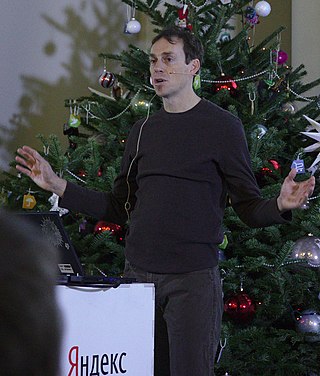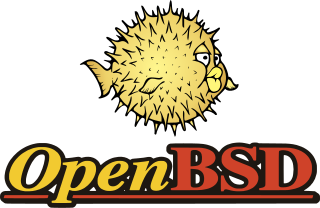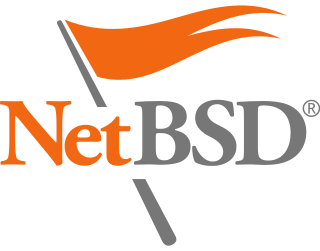
The Apache HTTP Server is a free and open-source cross-platform web server software, released under the terms of Apache License 2.0. It is developed and maintained by a community of developers under the auspices of the Apache Software Foundation.

Free software, libre software, or libreware is computer software distributed under terms that allow users to run the software for any purpose as well as to study, change, and distribute it and any adapted versions. Free software is a matter of liberty, not price; all users are legally free to do what they want with their copies of a free software regardless of how much is paid to obtain the program. Computer programs are deemed "free" if they give end-users ultimate control over the software and, subsequently, over their devices.
The MIT License is a permissive free software license originating at the Massachusetts Institute of Technology (MIT) in the late 1980s. As a permissive license, it puts only very limited restriction on reuse and has, therefore, high license compatibility.

Theo de Raadt is a South African-born software engineer who lives in Calgary, Alberta, Canada. He is the founder and leader of the OpenBSD and OpenSSH projects and was also a founding member of NetBSD. In 2004, De Raadt won the Free Software Award for his work on OpenBSD and OpenSSH.

OpenSSL is a software library for applications that provide secure communications over computer networks against eavesdropping, and identify the party at the other end. It is widely used by Internet servers, including the majority of HTTPS websites.

Free Software Foundation (FSF) grants two annual awards. Since 1998, FSF has granted the award for Advancement of Free Software and since 2005, also the Free Software Award for Projects of Social Benefit.
The OpenBSD operating system focuses on security and the development of security features. According to author Michael W. Lucas, OpenBSD "is widely regarded as the most secure operating system available anywhere, under any licensing terms."
In the context of free and open-source software, proprietary software only available as a binary executable is referred to as a blob or binary blob. The term usually refers to a device driver module loaded into the kernel of an open-source operating system, and is sometimes also applied to code running outside the kernel, such as system firmware images, microcode updates, or userland programs. The term blob was first used in database management systems to describe a collection of binary data stored as a single entity.
The ISC license is a permissive free software license published by the Internet Software Consortium, now called Internet Systems Consortium (ISC). It is functionally equivalent to the simplified BSD and MIT licenses, but without language deemed unnecessary following the Berne Convention.

FreeBSD is a free and open-source Unix-like operating system descended from the Berkeley Software Distribution (BSD). The first version of FreeBSD was released in 1993 developed from 386BSD and the current version runs on x86, ARM, PowerPC and RISC-V processors. The project is supported and promoted by the FreeBSD Foundation.
Nginx is a web server that can also be used as a reverse proxy, load balancer, mail proxy and HTTP cache. The software was created by Russian developer Igor Sysoev and publicly released in 2004. Nginx is free and open-source software, released under the terms of the 2-clause BSD license. A large fraction of web servers use Nginx, often as a load balancer.
The following outline is provided as an overview of and topical guide to free software and the free software movement:
Proprietary firmware is any firmware that has had its use, private modification, copying, or republishing restricted by the producer. Proprietors may enforce restrictions by technical means, such as by restricting source code access, firmware replacement restrictions, or by legal means, such as through copyright and patents. Alternatives to proprietary firmware may be free (libre) or open-source.

OpenBSD is a security-focused, free and open-source, Unix-like operating system based on the Berkeley Software Distribution (BSD). Theo de Raadt created OpenBSD in 1995 by forking NetBSD 1.0. The OpenBSD project emphasizes portability, standardization, correctness, proactive security, and integrated cryptography.
Intel PRO/Wireless is a series of Intel wireless products developed by Intel. These products include wireless network adapters, access points, and routers that are designed to provide high-speed wireless connectivity for computers, laptops, and other devices. Intel PRO/Wireless products use various wireless technologies, including Wi-Fi and Bluetooth, to provide wireless connectivity. Intel PRO/Wireless network adapters allow devices to connect to wireless networks, while access points and routers create wireless networks that devices can connect to.
Mbed TLS is an implementation of the TLS and SSL protocols and the respective cryptographic algorithms and support code required. It is distributed under the Apache License version 2.0. Stated on the website is that Mbed TLS aims to be "easy to understand, use, integrate and expand".

NetBSD is a free and open-source Unix operating system based on the Berkeley Software Distribution (BSD). It was the first open-source BSD descendant officially released after 386BSD was forked. It continues to be actively developed and is available for many platforms, including servers, desktops, handheld devices, and embedded systems.
The OpenBSD Cryptographic Framework (OCF) is a service virtualization layer for the uniform management of cryptographic hardware by an operating system. It is part of the OpenBSD Project, having been included in the operating system since OpenBSD 2.8. Like other OpenBSD projects such as OpenSSH, it has been ported to other systems based on Berkeley Unix such as FreeBSD and NetBSD, and to Solaris and Linux. One of the Linux ports is supported by Intel for use with its proprietary cryptographic software and hardware to provide hardware-accelerated SSL encryption for the open source Apache HTTP Server.

LibreSSL is an open-source implementation of the Transport Layer Security (TLS) protocol. The implementation is named after Secure Sockets Layer (SSL), the deprecated predecessor of TLS, for which support was removed in release 2.3.0. The OpenBSD project forked LibreSSL from OpenSSL 1.0.1g in April 2014 as a response to the Heartbleed security vulnerability, with the goals of modernizing the codebase, improving security, and applying development best practices.








